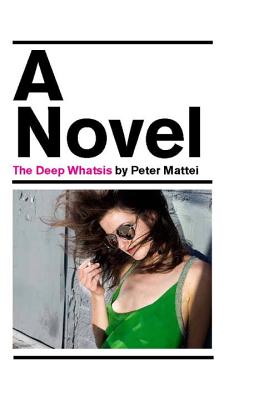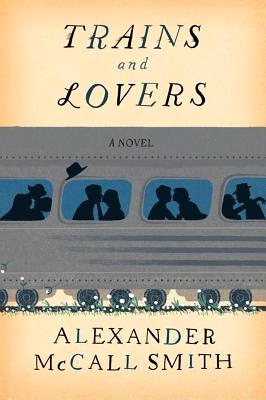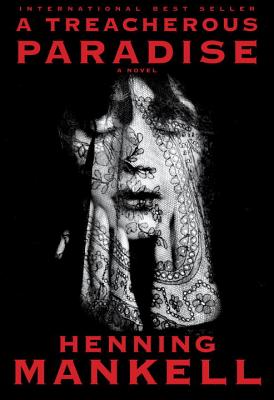The Deep Whatsis follows a
brilliant antihero staggering into madness as he navigates among
Brooklyn hipsters, advertising tyrants, corporate hypocrisy, and the
ghosts of his past.
Meet Eric Nye: player, philosopher, drunk, sociopath. A ruthless young Chief Idea Officer at a New York City ad agency, Eric downsizes his department, guzzles only the finest Sancerre, pops pills, and chases women. Then one day he meets Intern, whose name he can’t remember. Will she be the cause of his downfall, or his unlikely awakening?
A gripping and hilarious satire of the inherent absurdity of advertising and the flippant cruelty of corporate behavior, The Deep Whatsis shows the devastating effects of a world where civility and respect have been fired.
The rocking motion of the train as it speeds along, the sound of its wheels on the rails . . . There’s something special about this form of travel that makes for easy conversation, which is just what happens to the four strangers who meet in Trains and Lovers.
As they journey by rail from Edinburgh to London, the four travelers pass the time by sharing tales of trains that have changed their lives. A young, keen-eyed Scotsman recounts how he turned a friendship with a female coworker into a romance by spotting an anachronistic train in an eighteenth-century painting. An Australian woman shares how her parents fell in love and spent their life together running a railroad siding in the remote Australian Outback. A middle-aged American patron of the arts sees two young men saying goodbye in a train station and recalls his own youthful crush on another man. And a young Englishman describes how exiting his train at the wrong station allowed him to meet an intriguing woman whom he impulsively invited to dinner—and into his life.
Here is Alexander McCall Smith at his most enchanting, exploring the nature of love—and trains—in a collection of romantic, intertwined stories.
Meet Eric Nye: player, philosopher, drunk, sociopath. A ruthless young Chief Idea Officer at a New York City ad agency, Eric downsizes his department, guzzles only the finest Sancerre, pops pills, and chases women. Then one day he meets Intern, whose name he can’t remember. Will she be the cause of his downfall, or his unlikely awakening?
A gripping and hilarious satire of the inherent absurdity of advertising and the flippant cruelty of corporate behavior, The Deep Whatsis shows the devastating effects of a world where civility and respect have been fired.
The rocking motion of the train as it speeds along, the sound of its wheels on the rails . . . There’s something special about this form of travel that makes for easy conversation, which is just what happens to the four strangers who meet in Trains and Lovers.
As they journey by rail from Edinburgh to London, the four travelers pass the time by sharing tales of trains that have changed their lives. A young, keen-eyed Scotsman recounts how he turned a friendship with a female coworker into a romance by spotting an anachronistic train in an eighteenth-century painting. An Australian woman shares how her parents fell in love and spent their life together running a railroad siding in the remote Australian Outback. A middle-aged American patron of the arts sees two young men saying goodbye in a train station and recalls his own youthful crush on another man. And a young Englishman describes how exiting his train at the wrong station allowed him to meet an intriguing woman whom he impulsively invited to dinner—and into his life.
Here is Alexander McCall Smith at his most enchanting, exploring the nature of love—and trains—in a collection of romantic, intertwined stories.
From the incomparable David Rakoff, a
poignant, beautiful, witty, and wise novel in verse whose scope spans
the twentieth century
Through his books and his radio essays for NPR's This American Life, David Rakoff has built a deserved reputation as one of the finest and funniest essayists of our time. Written with humor, sympathy, and tenderness, this intricately woven novel proves him to be the master of an altogether different art form.
Love, Dishonor, Marry, Die, Cherish, Perish leaps cities and decades as Rakoff sings the song of an America whose freedoms can be intoxicating, or brutal.
The characters' lives are linked to each other by acts of generosity or cruelty. A daughter of Irish slaughterhouse workers in early-twentieth-century Chicago faces a desperate choice; a hobo offers an unexpected refuge on the rails during the Great Depression; a vivacious aunt provides her clever nephew a path out of the crushed dream of postwar Southern California; an office girl endures the casually vicious sexism of 1950s Manhattan; the young man from Southern California revels in the electrifying sexual and artistic openness of 1960s San Francisco, then later tends to dying friends and lovers as the AIDS pandemic devastates the community he cherishes; a love triangle reveals the empty materialism of the Reagan years; a marriage crumbles under the distinction between self-actualization and humanity; as the new century opens, a man who has lost his way finds a measure of peace in a photograph he discovers in an old box—an image of pure and simple joy that unites the themes of this brilliantly conceived work.
Rakoff's insistence on beauty and the necessity of kindness in a selfish world raises the novel far above mere satire. A critic once called Rakoff "magnificent," a word that perfectly describes this wonderful novel in verse.
From the internationally acclaimed author of the Kurt Wallander crime novels, a powerful stand-alone novel set in early-twentieth-century Sweden and Mozambique, whose vividly drawn female protagonist is awoken from her naïveté by her exposure to racism and by her own unexpected inner strengths.
Cold and poverty define Hanna Renström’s childhood in remote northern Sweden, and in 1904, at nineteen, she boards a ship for Australia in hope of a better life. But none of her hopes—or fears—prepares her for the life she will lead. After two brief marriages both leave her widowed, she finds herself the owner of a bordello in Portuguese East Africa, a world where colonialism and white colonists rule, where she is isolated within white society by her profession and her gender, and, among the bordello’s black prostitutes, by her color.
As Hanna’s story unfurls over the next several years in this “treacherous paradise,” she wrestles with a devastating loneliness and with the racism she’s meant to unthinkingly adopt. And as her life becomes increasingly intertwined with the prostitutes’, she moves inexorably toward the moment when she will make a decision that defies all the expectations society has of her and, more important, those she has of herself.
Gripping in its drama, evocative and searing in its portrait of colonial Africa, A Treacherous Paradise is, at its heart, a deeply moving story of a woman who manages to wrench wisdom, empathy, and grace from the most unforgiving circumstances.
Through his books and his radio essays for NPR's This American Life, David Rakoff has built a deserved reputation as one of the finest and funniest essayists of our time. Written with humor, sympathy, and tenderness, this intricately woven novel proves him to be the master of an altogether different art form.
Love, Dishonor, Marry, Die, Cherish, Perish leaps cities and decades as Rakoff sings the song of an America whose freedoms can be intoxicating, or brutal.
The characters' lives are linked to each other by acts of generosity or cruelty. A daughter of Irish slaughterhouse workers in early-twentieth-century Chicago faces a desperate choice; a hobo offers an unexpected refuge on the rails during the Great Depression; a vivacious aunt provides her clever nephew a path out of the crushed dream of postwar Southern California; an office girl endures the casually vicious sexism of 1950s Manhattan; the young man from Southern California revels in the electrifying sexual and artistic openness of 1960s San Francisco, then later tends to dying friends and lovers as the AIDS pandemic devastates the community he cherishes; a love triangle reveals the empty materialism of the Reagan years; a marriage crumbles under the distinction between self-actualization and humanity; as the new century opens, a man who has lost his way finds a measure of peace in a photograph he discovers in an old box—an image of pure and simple joy that unites the themes of this brilliantly conceived work.
Rakoff's insistence on beauty and the necessity of kindness in a selfish world raises the novel far above mere satire. A critic once called Rakoff "magnificent," a word that perfectly describes this wonderful novel in verse.
From the internationally acclaimed author of the Kurt Wallander crime novels, a powerful stand-alone novel set in early-twentieth-century Sweden and Mozambique, whose vividly drawn female protagonist is awoken from her naïveté by her exposure to racism and by her own unexpected inner strengths.
Cold and poverty define Hanna Renström’s childhood in remote northern Sweden, and in 1904, at nineteen, she boards a ship for Australia in hope of a better life. But none of her hopes—or fears—prepares her for the life she will lead. After two brief marriages both leave her widowed, she finds herself the owner of a bordello in Portuguese East Africa, a world where colonialism and white colonists rule, where she is isolated within white society by her profession and her gender, and, among the bordello’s black prostitutes, by her color.
As Hanna’s story unfurls over the next several years in this “treacherous paradise,” she wrestles with a devastating loneliness and with the racism she’s meant to unthinkingly adopt. And as her life becomes increasingly intertwined with the prostitutes’, she moves inexorably toward the moment when she will make a decision that defies all the expectations society has of her and, more important, those she has of herself.
Gripping in its drama, evocative and searing in its portrait of colonial Africa, A Treacherous Paradise is, at its heart, a deeply moving story of a woman who manages to wrench wisdom, empathy, and grace from the most unforgiving circumstances.




No comments:
Post a Comment